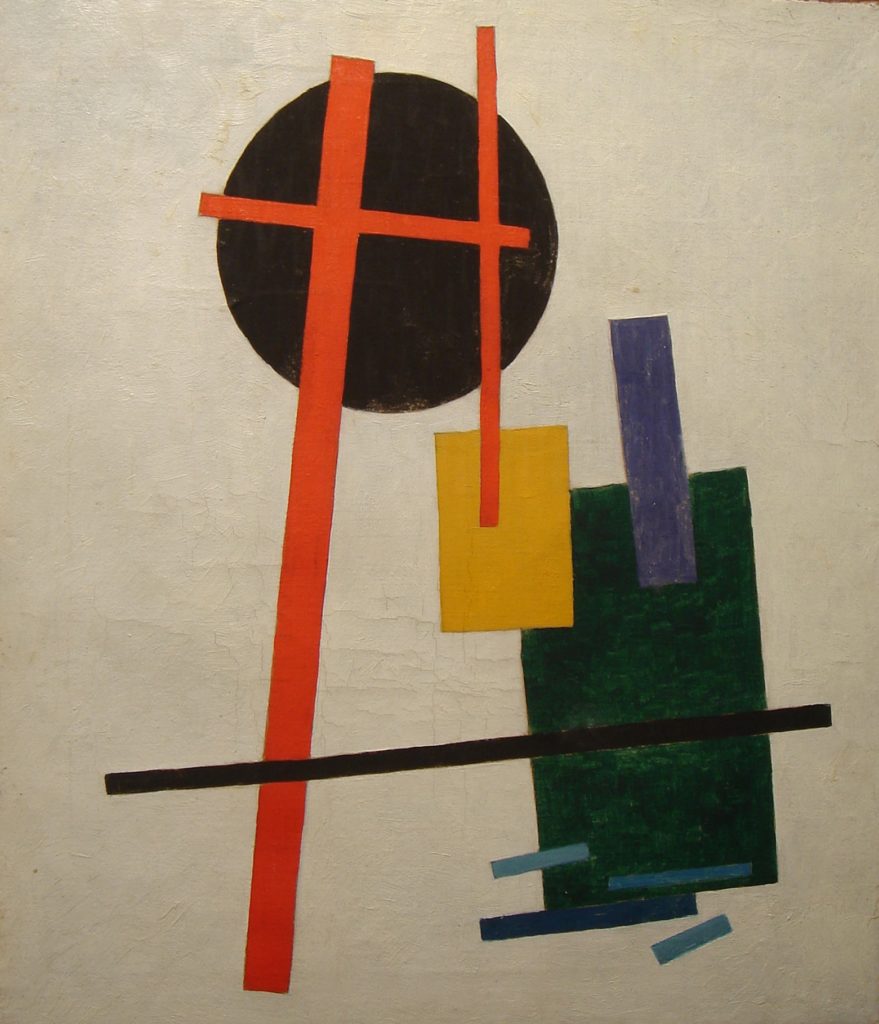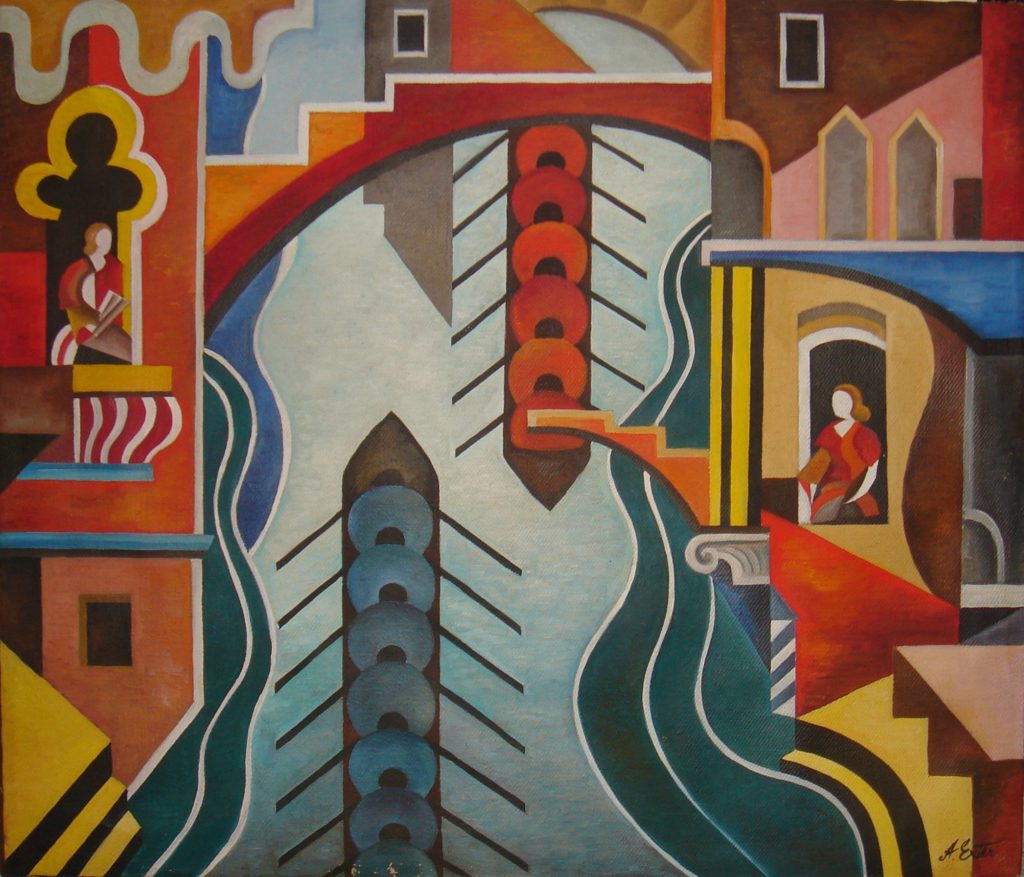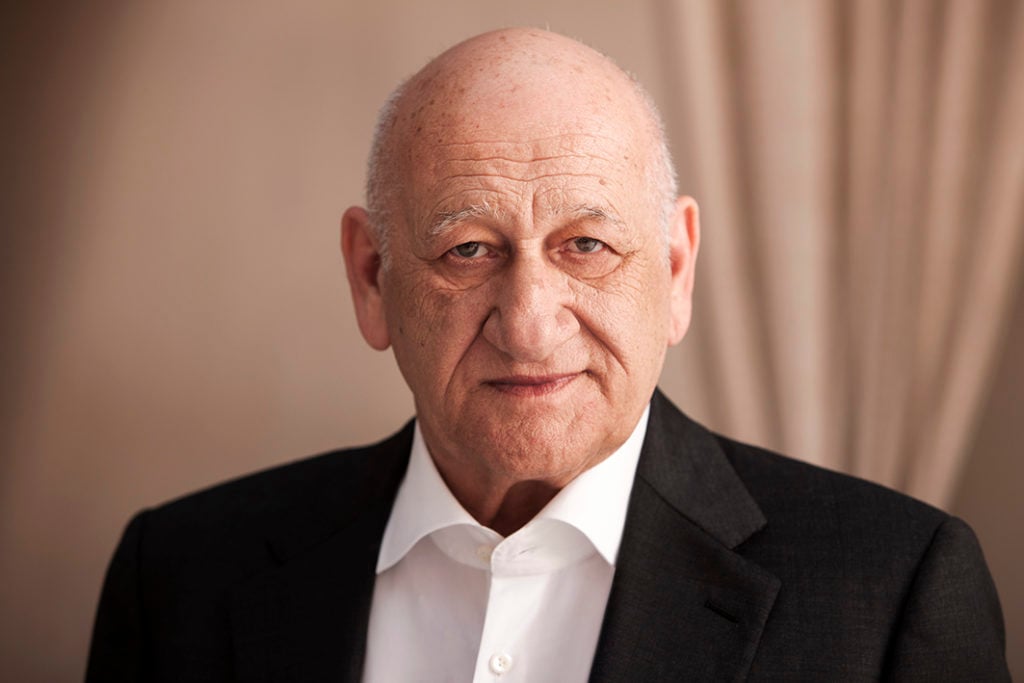The alleged mastermind behind a forgery ring who had been detained in Germany for just under three years on charges of selling fake Russian avant-garde artworks was sentenced to two years and eight months imprisonment after a German court found him guilty of three counts of fraud and attempted fraud, one of which relates to the falsification of provenance documentation.
The Israeli art dealer and collector Itzhak Zarug and his business partner Moez Ben Hazaz were arrested in June 2013 after a German police raid found more than 1,000 suspected forgeries in apartments and warehouses across the country.

Kasimir Malevich Suprematism (ca. 1915 – 1916). Photo: courtesy of Itzhak Zarug.
The suspicious canvasses at the center of the investigation—purported to be by the likes of Wassily Kandinsky, Kazimir Malevich, Alexej von Jawlensky, and Natialia Goncharova—were believed to have been made in Israel and sold through SMZ Gallery, which Zarug owned and managed in Wiesbaden. The men were accused of causing damages of almost €11 million ($12.5 million) from the sale of the works. At the time, the trial was heralded as a major development in the ongoing effort to crack down on the trade of fake Russian avant-garde art.
After five years of investigating the 1,800-work collection in collaboration with more than 10 international experts, however, authorities were ultimately unable to determine the authenticity of the bulk of the collection, after only four paintings were declared to be fakes.
With the exception of the four works that were “demonstrably counterfeit,” the court could not say whether the remaining paintings were genuine in its summary judgement.
“Based on the evidence it could not be proven beyond reasonable doubt that they are fake,” the court said, but added that “it should be noted that over the course of the criminal proceedings only a small portion of the seized paintings were subject to authenticity examination, in that respect neither the prosecutor or the court can determine if they are real or fake.” According to the Guardian, the original charges were narrowed down and only 19 works were considered during the trial.
Meanwhile, two paintings and one work on paper are still being held by the court while pigment samples are examined.

Alexandra Exter Venice (ca. 1924). Photo: courtesy of Itzhak Zarug.
According to Wiesbadener Kurier, Zarug’s business partner received a three-year sentence in February after he admitted to fabricating the provenance of four artworks and agreed to a plea bargain. Neither Zarug nor Ben Hazaz will go behind bars as both have already served the equivalent time in “untersuchungshaft,” a type of preliminary detention that is employed in the German legal system while an investigation is underway. However, the two dealers must pay around €1 million ($1.2 million) in damages.
Undeterred by the court’s judgement, Zarug hailed the ruling as a victory. “Reason and justice have prevailed, and my pictures can at last be enjoyed without suspicion or concern,” he said in a statement. “I am pleased that the allegations against me and against my pictures have been proven to be unfounded.”
A separate conviction Zarug received in 2013 from a Milan court that found him guilty of trying to sell a forged Kandinsky painting still stands. (He was handed a one-year suspended sentence in absentia.) A spokesman for Zarug told artnet News that his client’s appeal was interrupted by his arrest in Germany before he could file it in Italian court. “Mr. Zarug has now re-engaged with the legal situation and is in the process of launching his appeal,” the spokesman told artnet News in an email. “He is confident that this decision will be overturned.”
UPDATE, March 22: This story has been updated to include excerpts from the court’s decision, which was not immediately available to the public following the ruling.










